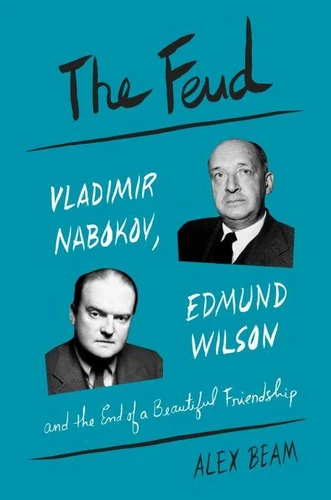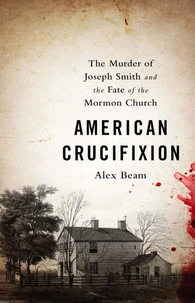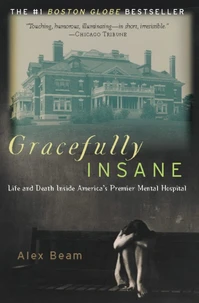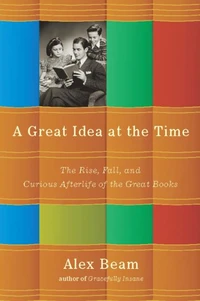The Feud. Vladimir Nabokov, Edmund Wilson, and the End of a Beautiful Friendship
Par :Formats :
Disponible dans votre compte client Decitre ou Furet du Nord dès validation de votre commande. Le format ePub protégé est :
- Compatible avec une lecture sur My Vivlio (smartphone, tablette, ordinateur)
- Compatible avec une lecture sur liseuses Vivlio
- Pour les liseuses autres que Vivlio, vous devez utiliser le logiciel Adobe Digital Edition. Non compatible avec la lecture sur les liseuses Kindle, Remarkable et Sony
- Non compatible avec un achat hors France métropolitaine
 , qui est-ce ?
, qui est-ce ?Notre partenaire de plateforme de lecture numérique où vous retrouverez l'ensemble de vos ebooks gratuitement
Pour en savoir plus sur nos ebooks, consultez notre aide en ligne ici
- Nombre de pages256
- FormatePub
- ISBN978-1-101-87023-5
- EAN9781101870235
- Date de parution06/12/2016
- Protection num.Adobe DRM
- Taille4 Mo
- Infos supplémentairesepub
- ÉditeurPantheon
Résumé
The Feud is the deliciously ironic (and sad) tale of how two literary giants destroyed their friendship in a fit of mutual pique and egomania. In 1940, Edmund Wilson was the undisputed big dog of American letters. Vladimir Nabokov was a near-penniless Russian exile seeking asylum in the States. Wilson became a mentor to Nabokov, introducing him to every editor of note, assigning him book reviews for The New Republic, engineering a Guggenheim Fellowship.
Their intimate friendship blossomed over a shared interest in all things Russian, ruffled a bit by political disagreements. But then came the worldwide best-selling novel Lolita, and the tables were turned. Suddenly Nabokov was the big (and very rich) dog. The feud finally erupted in full when Nabokov published his hugely footnoted and virtually unreadable literal translation of Pushkin's famously untranslatable verse novel, Eugene Onegin.
Wilson attacked his friend's translation with hammer and tongs in The New York Review of Books. Nabokov counterattacked. Back and forth the increasingly aggressive letters flew, until the narcissism of small differences reduced their friendship to ashes. Alex Beam has fashioned this clash of literary titans into a delightful and irresistible book-a comic contretemps of a very high order and a poignant demonstration of the fragility of even the deepest of friendships.(With black-and-white illustrations throughout)
Their intimate friendship blossomed over a shared interest in all things Russian, ruffled a bit by political disagreements. But then came the worldwide best-selling novel Lolita, and the tables were turned. Suddenly Nabokov was the big (and very rich) dog. The feud finally erupted in full when Nabokov published his hugely footnoted and virtually unreadable literal translation of Pushkin's famously untranslatable verse novel, Eugene Onegin.
Wilson attacked his friend's translation with hammer and tongs in The New York Review of Books. Nabokov counterattacked. Back and forth the increasingly aggressive letters flew, until the narcissism of small differences reduced their friendship to ashes. Alex Beam has fashioned this clash of literary titans into a delightful and irresistible book-a comic contretemps of a very high order and a poignant demonstration of the fragility of even the deepest of friendships.(With black-and-white illustrations throughout)
The Feud is the deliciously ironic (and sad) tale of how two literary giants destroyed their friendship in a fit of mutual pique and egomania. In 1940, Edmund Wilson was the undisputed big dog of American letters. Vladimir Nabokov was a near-penniless Russian exile seeking asylum in the States. Wilson became a mentor to Nabokov, introducing him to every editor of note, assigning him book reviews for The New Republic, engineering a Guggenheim Fellowship.
Their intimate friendship blossomed over a shared interest in all things Russian, ruffled a bit by political disagreements. But then came the worldwide best-selling novel Lolita, and the tables were turned. Suddenly Nabokov was the big (and very rich) dog. The feud finally erupted in full when Nabokov published his hugely footnoted and virtually unreadable literal translation of Pushkin's famously untranslatable verse novel, Eugene Onegin.
Wilson attacked his friend's translation with hammer and tongs in The New York Review of Books. Nabokov counterattacked. Back and forth the increasingly aggressive letters flew, until the narcissism of small differences reduced their friendship to ashes. Alex Beam has fashioned this clash of literary titans into a delightful and irresistible book-a comic contretemps of a very high order and a poignant demonstration of the fragility of even the deepest of friendships.(With black-and-white illustrations throughout)
Their intimate friendship blossomed over a shared interest in all things Russian, ruffled a bit by political disagreements. But then came the worldwide best-selling novel Lolita, and the tables were turned. Suddenly Nabokov was the big (and very rich) dog. The feud finally erupted in full when Nabokov published his hugely footnoted and virtually unreadable literal translation of Pushkin's famously untranslatable verse novel, Eugene Onegin.
Wilson attacked his friend's translation with hammer and tongs in The New York Review of Books. Nabokov counterattacked. Back and forth the increasingly aggressive letters flew, until the narcissism of small differences reduced their friendship to ashes. Alex Beam has fashioned this clash of literary titans into a delightful and irresistible book-a comic contretemps of a very high order and a poignant demonstration of the fragility of even the deepest of friendships.(With black-and-white illustrations throughout)







